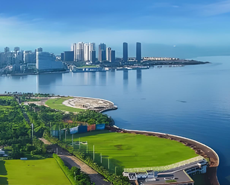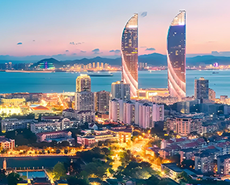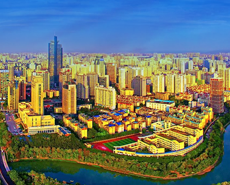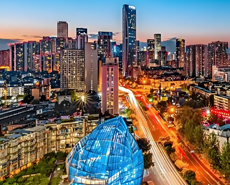Soaring prices lead to co-existence of risks and profits in niobium market
----Interview with Mr. Cai Haicheng, general manager of Yanling Jincheng Titanium and Niobium Co., Ltd.
Yanling Jincheng Titanium & Niobium Co., Ltd. originates from Kangda Waste Distribution Co., Ltd. which was set up in 2001 on processing and sales of titanium and niobium. With its technical and financial strengths enhanced, Kangda Waste Materials Co., Ltd. was renamed successively as Wenlin Jincheng Titanium & Niobium Co., Ltd. in 2007 and as Yanling Jincheng Titanium & Niobium Co., Ltd. in 2011. As a titanium and niobium producer, Yanling Jincheng Titanium & Niobium Co., Ltd. has operations in Zhejiang and Hunan. With a registered capital of RMB10 million, it has invested RMB180 million into building three titanium-niobium production lines and waste titanium-niobium treatment center, as well as two operation buildings with a total area of 12,000m2.
Asian Metal: Mr. Cai, thank you for taking this interview. At first, would you please give us a brief introduction about the latest development of your company?
Cai: Thanks. Currently, our production capacity consists of 200t of titanium ingot, 400t of niobium bar, and 200t of niobium ingot. With notable advantages in prices, supply of our products always falls short of demand. In order to better meet up with demand, we commenced construction of stage II project of our niobium-bar capacity, expecting to put it into operation by end of this year. By next March our niobium bar output will rise to 1,100t.
Asian Metal: How do you think of the influences of continuously rising prices for raw materials upon the downstream products, as demand for those downstream products needs certain time to pick up?
Cai: It depends upon what market conditions we face. In a fairly played market, prices for raw materials are adjusted by the market itself, fluctuating within a normal range, and accordingly resources are reasonably allocated by the market. But in a market manipulated by evildoers, prices are boosted up on purpose, which surely impose great impacts upon downstream products. Of course, unrealistic price will surely plunge one day, but it is absolutely bad for the whole supply chain.
Asian Metal: What are your most important development plans this year?
Cai: In the following three months we will increase our niobium bar capacity to 600t. And construction of Stage II project of niobium bar capacity is underway, and by end of this year it will come on line. By next March our niobium bar capacity will increase to 1,100t.
Asian Metal: Compared with overseas producers, what are the advantages of your products? And in which directions do you plan to consolidate and expand your businesses?
Cai: Our biggest advantage is our production technique. We have spent over two years in our technical upgrade, and now our upgraded production technique allows us to slash our production costs but at the same time to maintain an unchanged high quality. Now, we can limit N content to less than 100ppm in our niobium bars produced with the new technique, upon which we will work hard further to reduce it to less than 60ppm.
Asian Metal: How do you think of the current and future markets for niobium metal?
Cai: Prices for raw materials have been rising continuously, but too dramatic price upticks will surely be bad for the downstream market. Demand for those downstream products will decline and they may be replaced by other products. For example, Brazilian origin ferroniobium products have competitive advantages, and if prices for niobium oxide increase too unrealistically, we may end up forced to leave the niobium market.
Asian Metal: How do you think of impacts of environmental inspections in China, as they become increasingly rigorous? Will they have impacts up pricing of the products?
Cai: As China’s economy keeps growing vigorously, government attaches greater importance to and becomes stricter in environmental protection. Environmental inspections surely have influences upon production enterprise, as prices for raw materials may rise slightly, but there will be no much influence upon pricing of products.
Asian Metal: As a downstream production enterprise, do you consider restocking more raw materials as supply of ores and oxides remains tight?
Cai: Actually we have been undertaking anti-risk work, which started as early as three years ago. In 2016 when the market was sluggish, we purchases sufficient volumes of niobium oxide. Our current stocks in hand can cover our titanium production for eight months and niobium for one year in the future, even if we purchase no more raw materials now. This is why we are able to keep our price for niobium bar unchanged at RMB370/kg throughout the year. It is also an opportunity for us to reward our customers.
Asian Metal: Thanks again for taking our interview, and wish a more prosperous future for Jincheng Titanium & Niobium!
















